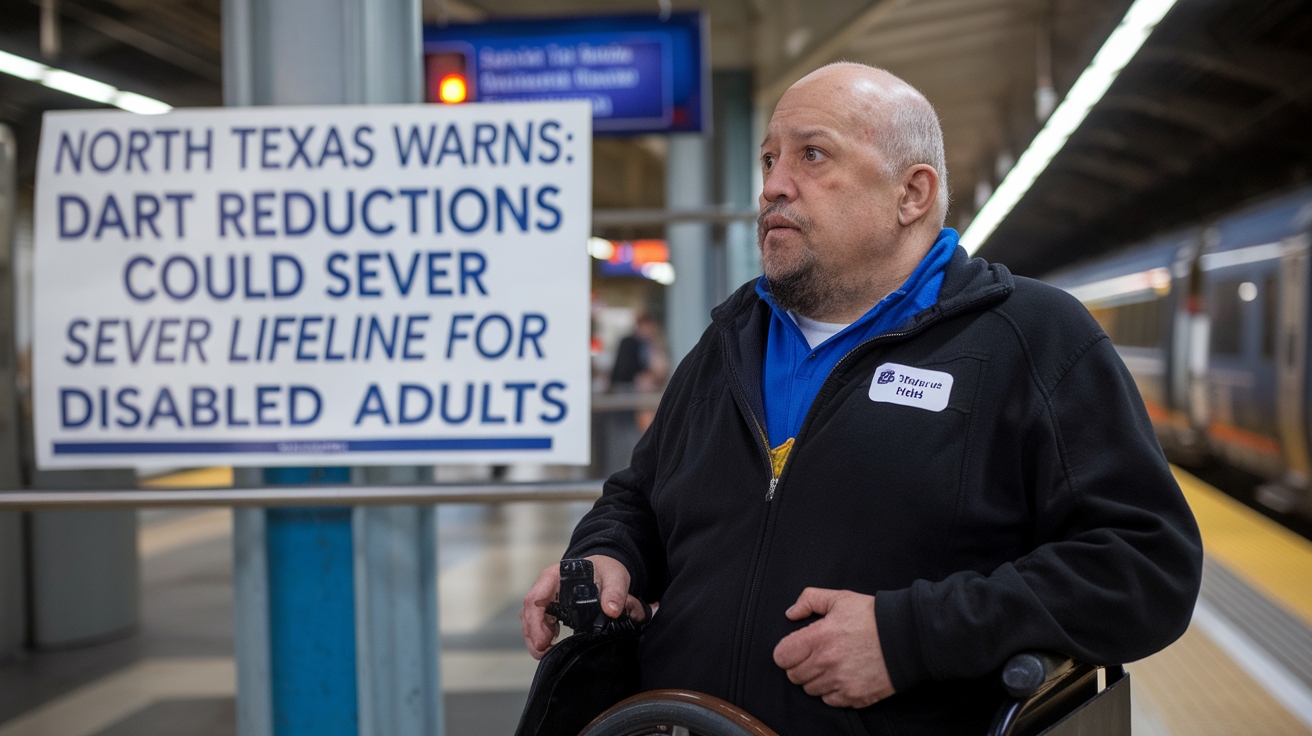North Texas Warns: DART Reductions Could Sever Lifeline for Disabled Adults
Plano Shoutouts™
Archives
North Texas Warns: DART Reductions Could Sever Lifeline for Disabled Adults
SIGN UP FOR OUR NEWSLETTER
North Texas Warns: DART Reductions Could Sever Lifeline for Disabled Adults |
Proposed service cuts threaten essential transportation for vulnerable communities |
In North Texas, the Dallas Area Rapid Transit (DART) system serves as a vital link for many residents, especially adults with disabilities who rely on its services for daily activities.
However, proposed reductions in DART services have sparked significant concern among these communities.
At My Possibilities, a Plano-based continuing education and job placement program for adults with intellectual and developmental disabilities, approximately 40% to 50% of participants depend on DART for transportation.
These individuals, affectionately referred to as "hipsters," view DART not just as a mode of transport but as an essential part of their daily lives.
Tripp Hemphill, a representative from My Possibilities, emphasized the importance of DART, stating, "DART is pretty much the lifeline for a lot of the people that attend our program."
He highlighted the joy participants experience when interacting with familiar drivers, underscoring the personal connections formed through these services.
In March 2025, the DART Board approved a new General Mobility Program, aiming to redistribute 5% of its annual sales tax revenue among seven cities over two years.
To accommodate this shift and address requests for new services, DART proposed several changes, including reducing the frequency of bus routes, light rail, and the Trinity Railway Express (TRE), as well as increasing fares for ADA Paratransit services.
These adjustments also involve eliminating nine bus routes and certain GoLink zones.
Community input has been a critical component of this process.
In July 2025, a public meeting saw nearly 200 speakers voicing their concerns over the proposed changes.
Jasmyn Carter, a DART representative, acknowledged the importance of these discussions, stating, "This was an opportunity for us to just sit and listen and say, 'OK, this is what we need to consider before Aug. 1.'"
The DART Board of Directors is expected to vote on the proposed changes in August, with potential implementation in January 2026.
Until then, organizations like My Possibilities and the communities they serve continue to advocate for the preservation of essential routes and services.
Hemphill expressed the urgency of the situation, noting that without DART, many participants would lose their primary means of accessing education and employment opportunities.
As North Texas navigates these proposed changes, the voices of those most affected remain at the forefront, emphasizing the critical role public transportation plays in fostering inclusive and accessible communities. |

